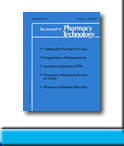 |
 |
SORAFENIB FOR THE TREATMENT OF RENAL CELL CARCINOMA
Caren L Hughes, Winston W Tan, and Marcus Ferrone
To request full article click here.
OBJECTIVE: To summarize the pharmacology, development, and clinical application of sorafenib, a specific tyrosine kinase and vascular growth factor inhibitor, for the treatment of renal cell carcinoma (RCC).
DATA SOURCES: Clinical literature, including both primary studies and review articles, was obtained by searching MEDLINE (1966–May 2006), using the search terms BAY 43-9006, sorafenib, renal cell carcinoma, and tyrosine kinase inhibitor. Additional information was supplied by the manufacturer, Bayer HealthCare Pharmaceuticals.
STUDY SELECTION AND DATA EXTRACTION: Review articles, abstracts, and clinical studies related to sorafenib were analyzed. An evaluation of the research exploring sorafenib as a potential therapy for RCC was conducted. Relevant information was then selected and is reviewed in this article.
DATA SYNTHESIS: Knowledge of the cellular abnormalities that can cause solid tumors has led to the development of medications that block these pathways. Sorafenib is an oral tyrosine kinase inhibitor that both blocks the Raf kinase pathway and inhibits vascular growth factors. Phase I and II trials have demonstrated that sorafenib has activity against RCC. Dermatologic reactions (rash, desquamation), fatigue, and hypertension have been the most commonly seen treatment-related adverse events. Sorafenib received FDA approval in December 2005 for treatment of advanced RCC.
CONCLUSIONS: Sorafenib is a novel oral tyrosine kinase inhibitor effective in the treatment of RCC.
J Pharm Technol 2006;22:281-8.
To request full article click here.
|
|
|
||
|

